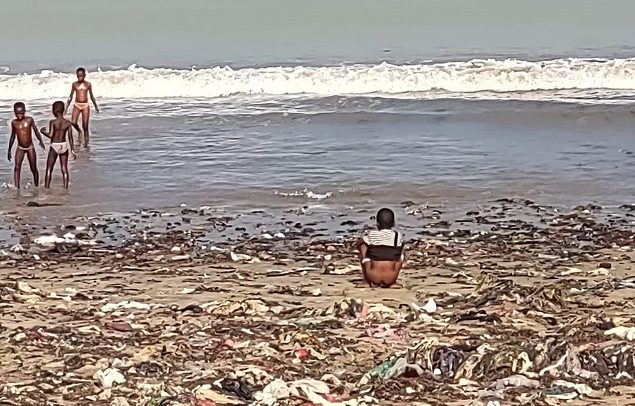
There is no polite way to say it: our country is dirty. From bustling Accra to serene Bolgatanga, and across coastal and inland communities, we are drowning in filth. The evidence is everywhere: plastic waste clogging gutters, piles of refuse choking markets, black polythene bags floating in rivers, and the pervasive stench of open defecation in some communities.
It is not just an eyesore. It is a public health crisis, an economic liability, and a moral failure. And the most troubling part? Much of this mess is self-inflicted.
We are the problem
Many Ghanaians casually dump rubbish in unauthorised places—gutters, pavements, bushy areas, and even sacred lands. The situation worsens when it rains. People, including educated ones, toss refuse into flowing gutters with the hope that the water will wash their sins away.
Ironically, this same waste blocks the drainage channels, causing floods that displace homes, destroy livelihoods, and spread water-borne diseases. The vicious cycle continues.
“One day, I watched a man in a suit throw a water bottle into a gutter in front of my office,” shared a journalist friend in Adabraka. “When I confronted him, he said, ‘Is it your father’s gutter?’ That is the mindset we are dealing with.”
Zoomlion and the paradox of vilification
One of the more baffling developments in recent years has been the vilification of Zoomlion Ghana Limited—a company that, despite its flaws, has arguably done more to organise waste collection than any other private entity.
Zoomlion is now winning contracts abroad—in Kenya and elsewhere—because other countries recognise the value of structured waste management. Why then do we, the beneficiaries of their pioneering work, drag them in the mud?
Sanitation is a shared responsibility. No single company or government ministry can clean Ghana. It takes an entire citizenry with a shared sense of discipline, purpose, and responsibility.
A mindset revolution is urgent
Our problem is not technology. It is not budget. It is attitude. A country where people throw rubbish from car windows or empty their bins into public drains needs a psychological awakening.
Clean countries did not become so by accident. They invested in education, enforcement, and systems—and most importantly, they built a culture of civic responsibility.
In Rwanda, the monthly national clean-up day (Umuganda) is not just symbolic. It is a ritual that reinforces ownership. In Japan, schoolchildren clean their own classrooms and toilets. What stops us from developing similar habits?
Investing in sanitation: a capital-intensive necessity
We must recognise that sanitation on a national scale is capital intensive. It requires sustained investments in:
- Modern waste trucks
- Transfer stations
- Engineered landfills
- Recycling plants
- Sewer systems
- Public toilets
- Sanitation education
Yet, this is where successive governments have failed. Sanitation remains one of the most underfunded sectors in our national budget. It is often bundled under urban roads or water supply and lacks the direct allocation it deserves.
Private sector participation should be encouraged, but with strict regulation and performance monitoring. Citizens deserve efficient, timely service.
Enforce the Laws, Reward the Good
We already have enough laws on sanitation. The challenge lies in enforcement. District Assemblies must activate their sanitation by-laws. Environmental Health Officers must be visible and empowered. People caught dumping waste illegally should be sanctioned firmly and fairly.
At the same time, we must reward the good. Communities that maintain cleanliness should be recognised and supported. Cleanest city awards, school sanitation prizes, and media exposure for best practices can go a long way to change behaviour.
Sanitation and Tourism
Imagine inviting investors and tourists to a city where the first thing they encounter is a pile of decaying garbage or the pungent smell of a blocked drain. We undermine our own economic potential by allowing filth to dominate our urban spaces.
Tourism thrives in clean environments. So do businesses. So do lives.
The Role of Faith and Civil Society
Religious bodies, civil society groups, and schools must all play a part. Sermons on cleanliness, youth-led clean-up campaigns, and waste-sorting education in classrooms are just some of the tools we must deploy.
Sanitation is not someone else’s job. It is ours. As citizens. As parents. As leaders.
Let us decide today: enough of the filth, the blame, the laziness. Let us rise, sweep, build, and preserve.
Ghana must get serious. Ghana must get clean.
The post Filthy and fading appeared first on The Business & Financial Times.
Read Full Story



















Facebook
Twitter
Pinterest
Instagram
Google+
YouTube
LinkedIn
RSS